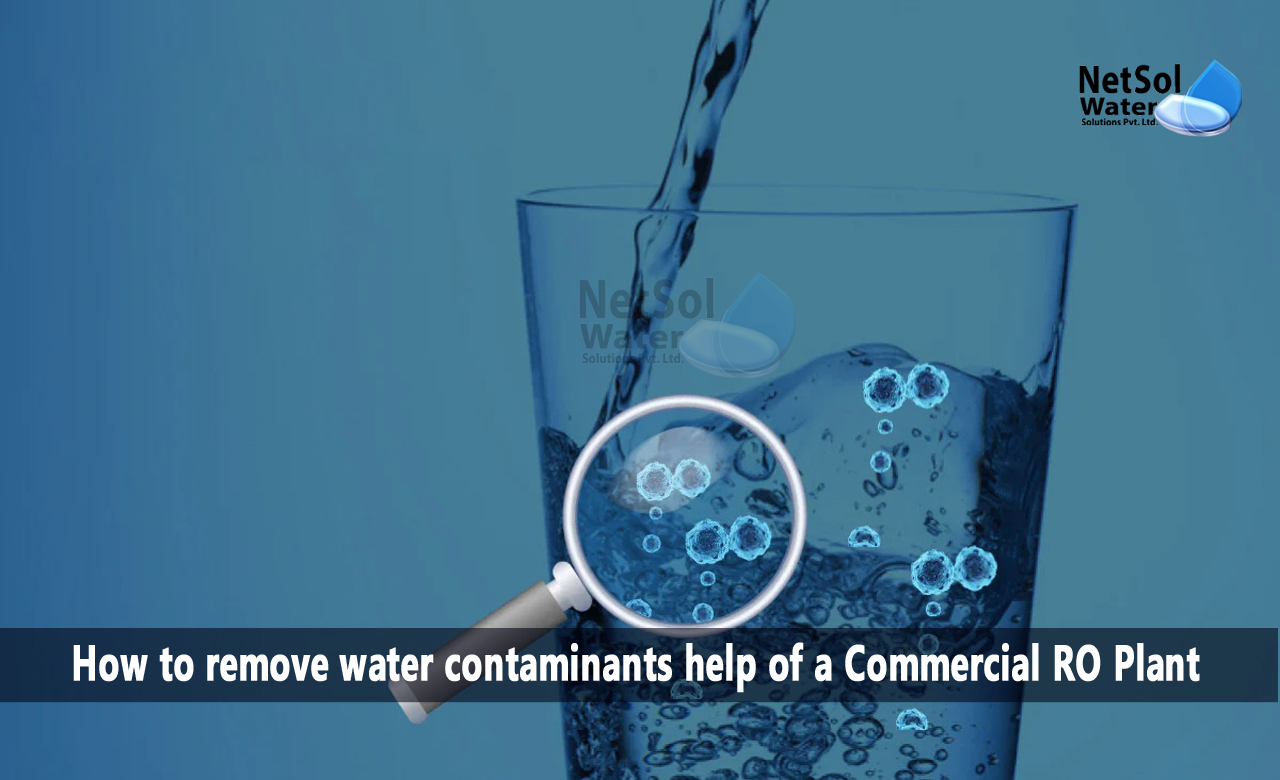How to remove water contaminants help of a Commercial RO Plant?
Water contamination is a significant global concern that affects both human health and the environment. Commercial reverse osmosis (RO) plants have emerged as an effective solution for addressing water contamination challenges.
Here we will see the role of commercial RO plants in removing contaminants from water sources, highlighting their benefits, operation, and considerations.
Understanding Reverse Osmosis Technology
We can understand RO Technology by following ways:
1. Principles of Reverse Osmosis:
Reverse osmosis is a water purification process that uses a semipermeable membrane to remove impurities, dissolved solids, and contaminants from water. By applying pressure, water molecules are forced through the membrane, while contaminants are left behind, resulting in purified water.
2. Operation of Commercial RO Plants:
Commercial RO plants consist of pre-treatment units, high-pressure pumps, RO membranes, and post-treatment units. The pre-treatment phase removes suspended solids, sediments, and organic matter to protect the RO membranes. The RO process effectively removes dissolved contaminants, such as heavy metals, salts, bacteria, and viruses, producing clean and safe water.
Benefits of Commercial RO Plants in Addressing Water Contamination
Some benefits of commercial RO Plants in addressing Water Contamination
1. Contaminant Removal:
Commercial RO plants are highly efficient in removing a wide range of contaminants from water sources. They effectively eliminate dissolved solids, heavy metals, pesticides, pharmaceutical residues, bacteria, viruses, and other harmful substances. This ensures that the water produced is free from potential health hazards and suitable for various applications.
2. Safe Drinking Water:
Commercial RO plants play a crucial role in providing safe drinking water. They can be installed in areas where the local water supply is contaminated or lacks adequate treatment infrastructure. RO technology removes contaminants that may pose health risks, providing communities with access to clean and potable water.
3. Industrial and Commercial Applications:
RO plants are widely used in industries that require high-quality water, such as food and beverage, pharmaceuticals, and electronics manufacturing. These plants ensure that process water meets stringent quality standards and helps prevent product contamination. Additionally, commercial establishments, including hotels and restaurants, rely on RO systems to provide their customers with safe and clean water.
Considerations and Implementation
1. Water Source Assessment:
Assessing the quality of the water source is crucial for the successful implementation of commercial RO plants. Understanding the specific contaminants present in the water and their concentrations helps determine the appropriate pre-treatment processes and membrane selection. Conducting comprehensive water analyses ensures effective removal of contaminants and minimizes the risk of membrane fouling.
2. System Design and Optimization:
Proper system design and optimization are essential for achieving optimal performance and contaminant removal efficiency. Factors such as feedwater quality, desired water production, recovery rates, and energy consumption need to be considered during the design phase. Optimizing system parameters, such as pressure, flow rates, and membrane selection, can enhance contaminant removal and system efficiency.
3. Monitoring and Maintenance:
Regular monitoring and maintenance of the commercial RO plant are critical for ensuring continued effectiveness in addressing water contamination challenges. Monitoring feedwater quality, pressure differentials, permeate quality, and system performance helps identify any deviations or issues promptly. Routine maintenance, including membrane cleaning, replacement, and system integrity checks, is necessary to sustain optimal operation and extend the lifespan of the plant.
Summary:
Commercial reverse osmosis plants play a vital role in addressing water contamination challenges by removing a wide range of contaminants from water sources. With their ability to provide safe drinking water and meet the high-quality water requirements of various industries, commercial RO plants are an effective solution to combat water contamination. Proper consideration of water source assessment, system design, and optimization, along with regular monitoring and maintenance, ensures the continued success of commercial RO plants in addressing water contamination challenges and promoting a healthier and safer water supply.
Leading manufacturer of sewage treatment plants in India.
Netsol Water is the leading manufacturer, supplier, and exporter of a quality selection of water treatment, and wastewater treatment products in India, by using advanced sewage treatment methods.
RO plants, water softeners, ETPs, STPs, DM plants, AMC, O&M, Ultra filtration, UV, Ozonation, ZLD plants, Anoxic tanks, and other goods and services are available from us. We also provide services to businesses in sectors including automotive, pharmaceutical, textile, pulp & paper, beverages, refineries, schools, hospitals, office buildings, and hotels, among others.
Netsol Water is Greater Noida-based leading water & wastewater treatment plant manufacturer. We are industry's most demanding company based on client review and work quality. We are known as best commercial RO plant manufacturers, industrial RO plant manufacturer, sewage treatment plant manufacturer, Water Softener Plant Manufacturers and effluent treatment plant manufacturers. Apart from this 24x7 customer support is our USP. Call on +91-9650608473, or write us at enquiry@netsolwater.com for any support, inquiry or product-purchase related query.



